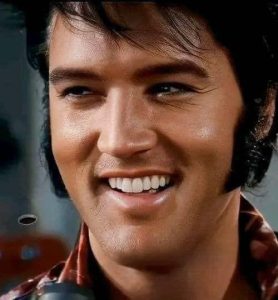In his 1970 rendition of “You Don’t Have to Say You Love Me,” Elvis Presley delivers a performance that showcases his remarkable interpretive skills and his ability to transform a seemingly simple pop ballad into a deeply moving, emotionally resonant work of art.
Originally recorded by Dusty Springfield in 1966, the song’s lyrics explore the bittersweet complexities of love and longing, grappling with the inherent vulnerability and uncertainty that comes with opening oneself up to another person. In Presley’s hands, the song takes on an added layer of poignancy and introspection, as the King’s rich, expressive voice effortlessly captures the nuanced emotions at the heart of the track.
From the opening lines, Presley’s vocal performance is a masterclass in emotional storytelling. His delivery is at once powerful and restrained, conveying a palpable sense of yearning and vulnerability that immediately draws the listener into the song’s narrative. The delicate balance between the song’s lush, orchestral arrangements and Presley’s commanding presence creates a captivating tension, heightening the sense of emotional investment and investment in the song’s unfolding arc.
What truly sets Presley’s version of “You Don’t Have to Say You Love Me” apart is the depth of his interpretive abilities. Rather than simply replicating the original recording, Presley imbues the song with his own unique stylistic flourishes and nuances, infusing it with a sense of personal investment and artistic ownership. His ability to modulate his phrasing, to seamlessly transition between the song’s more restrained moments and its soaring, impassioned crescendos, is a testament to his unparalleled talent as a vocalist.
Furthermore, Presley’s interpretation of “You Don’t Have to Say You Love Me” serves as a poignant reflection on his own personal experiences and the complexities of love and relationships. The song’s underlying themes of uncertainty and vulnerability resonate deeply with the King’s own public persona, adding an extra layer of emotional depth and authenticity to his performance.
In the pantheon of Presley’s discography, “You Don’t Have to Say You Love Me” stands as a shining example of the King’s versatility and his ability to elevate even the most seemingly conventional material into something truly extraordinary. The song’s enduring popularity and the countless covers and tributes it has inspired over the decades are a testament to the timeless, transcendent power of Presley’s musical artistry and his ability to touch the hearts and minds of listeners around the world.
